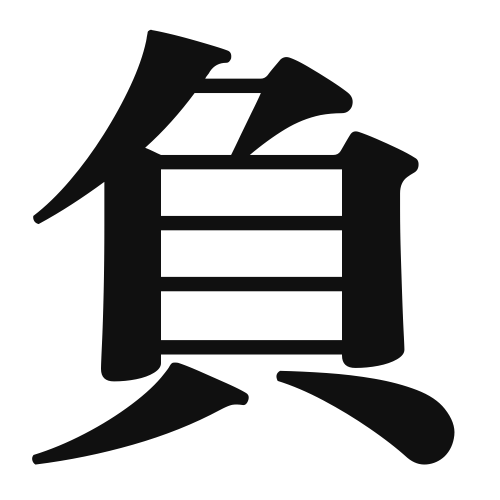1. Overview of Meaning
The kanji “負” (fu) primarily means “to bear,” “to carry,” or “to take on.” It can also imply “to lose” in the context of games or competitions.
2. Formation and Radical
Formation of the Kanji: The kanji “負” is a phonetic-ideographic character (形声文字). It combines the meaning of “to carry” with a phonetic component that suggests its pronunciation.
Radical: The radical for “負” is “負” itself, which relates to the concept of bearing or carrying.
3. Examples of Usage
Common Words and Phrases: Some frequently used words that include “負” are:
- 負担 (ふたん, futan) – burden
- 負ける (まける, makeru) – to lose
- 負け犬 (まけいぬ, makeinu) – loser (in a figurative sense)
Example Sentences in Daily Conversation:
- このプロジェクトは大きな負担です。 (このプロジェクトはおおきなふたんです。) – This project is a big burden.
- 試合に負けてしまった。 (しあいにまけてしまった。) – I ended up losing the match.
4. Synonyms and Antonyms
Similar Kanji: A similar kanji is “担” (たん, tan), which also means “to carry” but is more focused on the act of taking responsibility.
Antonyms: The antonym of “負” in the context of winning is “勝” (しょう, shou), which means “to win.”
5. Cultural and Historical Background
Relation to Japanese Culture: The concept of “負” is significant in Japanese culture, especially in the context of responsibility and burden-sharing within families and communities.
Proverbs and Idioms: An example of a proverb is “負けるが勝ち” (まけるがかち, makeru ga kachi), which translates to “losing is winning,” suggesting that sometimes, accepting defeat can lead to greater success in the long run.
